The right hair conditioner can make your hair glossy and bouncy, but the wrong one can instantly make it lifeless and lank. What’s in them that make them so different?
pH and hair
The most important thing about hair conditioner is that it’s acidic (pH < 7). Hair is made up of three major layers – the innermost medulla, the cortex where hair dye sits, and the cuticle, which is made up of overlapping flat cells like fish scales. These are supposed to lie down flat in a smooth, shiny layer, which is held together by forces called hydrogen bonding (I promise you it won’t get much more complex than this!).
(More info on pH in my post almost exactly a year ago here!)
Humectants – Humectants are in skincare too – they attract water to the hair and keep it there. Examples include panthenol, glycerols. If your hair is prone to frizziness when humid, a conditioner with lots of these might make it worse.
Silicones – These coat the hair in a thin, glossy film which is slippery and lubricated. Silicones also help protect the hair from heat styling damage. They can weigh down fine hair, cause build-up, and straighten natural waves and curls, but some people (me included!) love the effect they have on hair! Dimethicone,dimethiconol, amodimethicone and cyclomethicone are all silicones.
Proteins – These are often touted to “repair” the hair, and some might penetrate the cuticle, a little bit – but these claims are usually overblown, and the repair is never permanent. They will often form a protective coating over the damaged hair though, but there are many other ingredients which do this, without the hefty price tag that protein-containing conditioners often have. Examples include hydrolysed keratin and silk proteins.
Long Hair Community
Naturally Curly
Black Girl With Long Hair
Curly Nikki
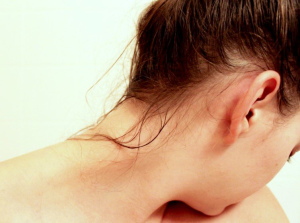


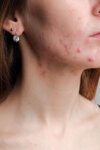
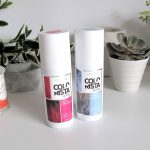
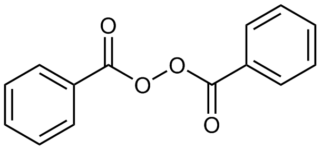
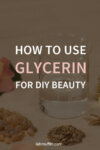
I have found coconut oil to be a total saviour for my (fine, bleach damaged) hair. I like to use it as a leave in and it’s like straightening my hair without the damage.
I’d also heard that some kinds of silicone are water soluble and therefore less of a downer. Is this true?
My hair’s pretty nasty at the ends too, and EVOO pre-shower just on the tips seems to work great for me, but it seems to get matted and attracts dust (ew) if I don’t wash it out. Coconut oil is on my list of things to try!
I’ve heard this too, and it makes sense – the water soluble ones (they contain a buttload of oxygens to interact with water better) would be easier to rinse out without needing super strong surfactants/clarifying treatments. Basically if the phrase “PEG-[number greater than 8]” is in the name, it will be water soluble. This page has a good explanation: http://www.naturallycurly.com/curlreading/products-ingredients/water-soluble-silicones
Thanks! I will check it out since I’m trying to wean myself off SLS shampoo. Coconut oil is great, but the trick is to use a TINY bit. I pour out an amount about the size of a very small coin, then rub it into my hands, then lightly touch my hair. For an overnight mask pre-shampoo I drench it but as a leave in you want barely any. I used too much at first and couldn’t figure out how to melt it (NOT A PROBLEM FOR YOU!) and had a couple of disasters, but now I think it’s ace.
This was fascinating! Thanks!
I did a whole post on silicones a while ago and I loved researching all about it. I have fine hair but I also love the way it makes my hair feel.
xx
It’s so fascinating – silicones are such a YMMV ingredient! We’re so lucky that they work for us, can’t imagine having to find silicone-free conditioners only, since they’re EVERYWHERE.
PS – the best silicone free conditioner I’ve found is tresemme nautrals. It’s really nice, I didn’t notice the difference.
i love your science posts! this is so interesting, i never knew any of that about conditioner!
Great information and great post!
I am always wondering why formaldehyde is used in nail hardeners, but I’ve never seen it on the package of a hair product. Aren’t they both made of keratin?
Btw, love your blog…and can’t wait for my cosmetology course! (I’m in second year at uni, and cosmetology comes in fourth)
I love the jojoba oil in the Cosmecology Instant Hair Repair Conditioner which really nourishes and softens my hair whilst protecting the colour.
Ingredients in the product are:
Jojoba Oil… Simmondsia Cchinensis Is a vegetable oil rich in active repairing compounds. It is known for its nourishing and regenerating effect on the scalp and hair.
Sunflower Extract (Heliogenol) is a hair protecting and repairing agent.
Pro-Vitamin B5 (or D-Panthenol) is a good hair moisturising and regenerating agent.
Vitamin E enhances hair growth.
I love your science posts so very, very much. I was always skeptical of how much of the “active ingredients” in conditioner could actually penetrate the cuticle. Interesting to find out my suspicion that protein more or less couldn’t get into the core of your hair was actually correct.
I only use silicone free conditioner now, an argan oil one from pro naturals and it has made a huge difference to my hair.
thank you for the recommendation, I use another good one, it’s pro naturals moroccan argan oil hair conditioner which is really good for hair too.
Very cool to read! Thanks for the simple explanation and diagrams. my hair looks very nice when i use permanent hair straightening
Interesting post!
This post has cleared up lots of confusion about conditioner.Now I know that conditioner really works and it has several benefits for hair.Thanks for sharing this useful information.
Thanks!
I loved this breakdown of hair conditioner ingredients! It’s fascinating to see how each element works together to improve hair health. I had no idea about the role of silicones in creating that smooth feel. Thanks for making the science behind our hair care so accessible!